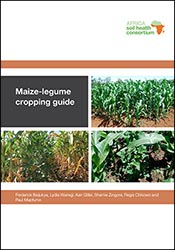My name is Mercy Haruna Wakawa. I am from Borno state Nigeria and I studied Food Science and Technology at the University of Maiduguri. Like every other Nigerian youth I was full of dreams and enthusiasm for a robust working career and livelihood after graduating from University. I searched endlessly for corporate jobs that are no longer available for my generation. My dreams suddenly collapsed as I came face-to-face with the reality of vanishing job opportunities and an increasing rate of youth unemployment in my country.

